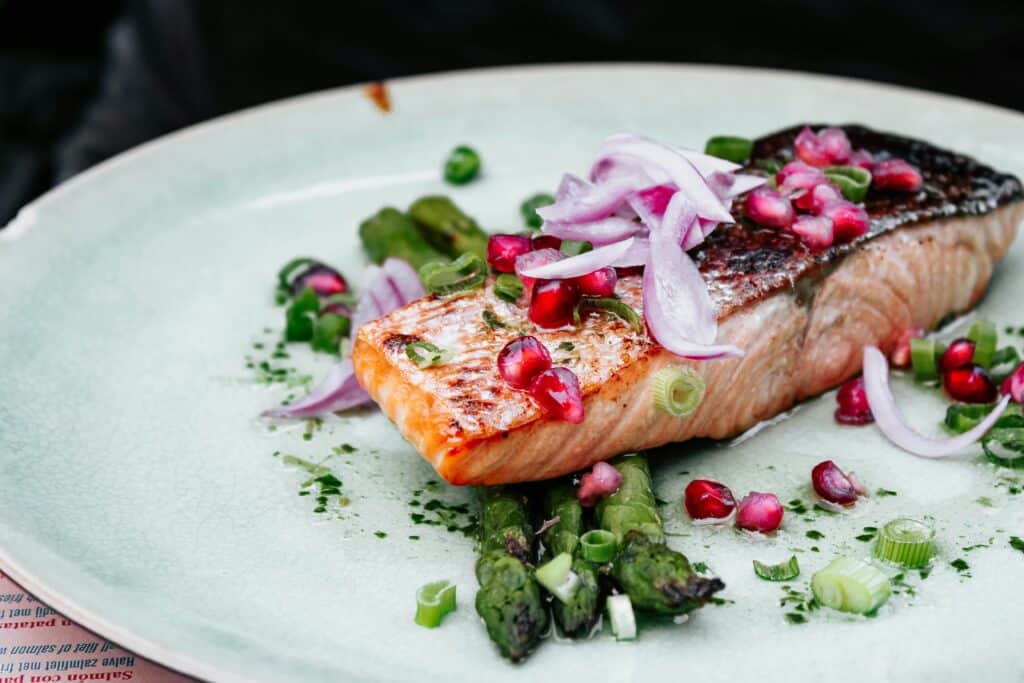Living abroad often makes people long for the foods of home—the smells, the flavors and the social rituals around the table. Yet no matter where you are, certain dietary patterns repeatedly emerge as the healthiest ways to eat. Researchers studying “blue zones”—regions where people live noticeably longer and suffer fewer chronic illnesses—have identified common threads in the diets of their inhabitants. In this expanded guide, we explore the world’s top diets, what they consist of, why they work and practical tips for making them part of your life.
The Mediterranean diet
The Mediterranean diet grew out of traditional eating habits in countries like Greece, Italy and Spain, where lifelong patterns of shared meals, fresh produce and moderate wine consumption coincide with exceptionally low rates of heart disease and many other illnesses. At its core, this eating style emphasizes:
- Plant-based abundance: Vegetables, fruits, legumes, whole grains, nuts and seeds form the bulk of every meal, supplying fiber, antioxidants and phytonutrients.
- Healthy fats: Olive oil—a hallmark of Mediterranean cuisine—replaces butter and other saturated fats, delivering monounsaturated fatty acids that support healthy cholesterol levels.
- Seafood and lean proteins: Fish and shellfish provide omega-3 fats linked to lower inflammation and reduced risk of stroke, while poultry, eggs and beans round out protein intake.
- Limited red meat and sweets: Red meat appears only occasionally, and desserts rely on fresh fruit or small amounts of honey.
- Social and lifestyle context: Meals are shared slowly, often with family or friends, reinforcing work-life balance and stress reduction—factors that bolster overall health.

Why it works
Numerous studies show that high intake of olive oil, vegetables and fish, together with moderate red-wine consumption, can lower blood pressure, improve blood-lipid profiles, support weight maintenance and even preserve cognitive function into older age. Because the diet is flexible and flavorful, long-term adherence is far more realistic than with highly restrictive plans.
How to adopt it
Begin by drizzling extra-virgin olive oil on salads and steamed vegetables, swapping white bread for whole-grain, and planning two fish-based meals per week. Host a weekly “Mediterranean night” with friends or family, centered on shared dishes like grilled vegetables, chickpea salads, hummus, olives and fresh fruit.
The DASH Diet (Dietary Approaches to Stop Hypertension)
Originally developed to combat high blood pressure, the DASH diet has become one of the most recommended eating plans for heart health and weight loss. It emphasizes:
- Fruits, vegetables and whole grains to supply potassium, magnesium, fiber and antioxidants.
- Low-fat dairy for calcium and protein without excess saturated fat.
- Lean meats, poultry and fish in moderate portions, alongside plant proteins such as beans and nuts.
- Reduced sodium—ideally under 1,500 mg per day—using herbs, spices and citrus to flavor foods.
- Limited sweets and sugar-sweetened beverages, focusing instead on fresh fruit for dessert.

Why it works
By boosting nutrient-dense, potassium-rich foods and cutting back on salt, DASH can lower systolic blood pressure by up to 11 points in just two months. Many who follow the DASH eating plan also experience modest weight loss, improved blood-lipid profiles and better insulin sensitivity.
How to adopt it
Start your day with a bowl of oatmeal topped with berries. Plan at least four vegetable-centric meals weekly. Replace high-salt snacks with raw nuts or sliced fruit. Keep a salt-tracker app handy and swap saltshakers for spice mixes.
The Nordic diet
Inspired by Scandinavian countries and traditions, the Nordic diet shares the Mediterranean focus on plant foods but uses regional ingredients:
- Modest amounts of dairy and lean meats, plus free-range eggs.
- Whole grains such as rye, barley and oats, often in dense breads or porridges.
- Fatty fish like herring and salmon, rich in omega-3s.
- Root vegetables and cruciferous greens, as well as wild berries packed with antioxidants.
- Rapeseed (canola) oil in place of olive oil, offering a balanced fatty-acid profile.

Why it works
Clinical trials show the Nordic diet can lower LDL cholesterol, reduce inflammation and support weight loss—attributes driven by its emphasis on fiber, healthy fats and seasonal eating. Sustainability is also a feature: eating locally sourced foods minimizes environmental impact.
How to adopt it
Explore Scandinavian cookbooks for recipes like pickled herring on rye crispbread, barley-and-mushroom pilafs or roasted root-vegetable medleys. Use rapeseed oil in your dressings and opt for whole-grain matches instead of refined grains.
The Japanese diet & Okinawa Variant
Japan’s traditional cuisine combines rice, soy and seafood into low-calorie, nutrient-dense meals. In Okinawa—known for the world’s highest proportion of centenarians—dietary patterns include:
- Hara hachi bu: The practice of eating until about 80% full helps maintain caloric balance.
- Staple carbohydrates: Rice, sweet potatoes (particularly purple yams) and other tubers.
- Plant proteins: Tofu, natto (fermented soybeans) and other soy-based foods provide complete proteins and probiotics.
- Seafood and seaweed: Fish, shellfish and sea vegetables offer iodine, omega-3s and trace minerals.
- Green tea: Rich in catechins that may support cardiovascular health and weight control.

Why it works
Clinical trials show the Nordic diet can lower LDL cholesterol, reduce inflammation and support weight loss—attributes driven by its emphasis on fiber, healthy fats and seasonal eating. Sustainability is also a feature: eating locally sourced foods minimizes environmental impact.
How to adopt it
Explore Scandinavian cookbooks for recipes like pickled herring on rye crispbread, barley-and-mushroom pilafs or roasted root-vegetable medleys. Use rapeseed oil in your dressings and opt for whole-grain matches instead of refined grains.
Flexitarian and Plant-Based Diets
Flexitarianism blends the best of vegetarian and omnivorous eating—eating mostly plant foods while still allowing occasional meat or fish. Fully plant-based (vegan) diets eliminate all animal products.
Core Tenets
- Vegetables, fruits, whole grains, legumes and nuts provide the base of every meal.
- Minimal processed foods, refined sugars and unhealthy fats.
- Occasional or no meat and dairy, focusing on nutrient-dense plant proteins.

Why it works
Research from the British Dietetic Association and the American Heart Association highlights that diets rich in plant foods lower risk of heart disease, type 2 diabetes and certain cancers. High fiber and low saturated-fat intake also help with long-term weight management.
How to adopt it
Try “Meatless Mondays,” cooking lentil chili or chickpea curries as your main weekly meal. Replace dairy milk with fortified plant milks. Ensure adequate B12 and iron through fortified foods or supplements, and explore plant-based meat alternatives sparingly.
Intermittent fasting and time-restricted eating
Rather than prescribing specific foods, intermittent fasting (IF) focuses on when you eat. Popular methods include:
- 16:8 method: Fast for 16 hours and eat during an 8-hour window each day.
- 5:2 plan: Eat normally five days per week; restrict calories to about 500–600 on two nonconsecutive days.
- Alternate-day fasting: Eat normally one day, then fast or eat very little the next.

Why it works
By limiting the eating window, IF naturally reduces calorie intake and can improve insulin sensitivity, lower fasting blood glucose and support weight loss. Emerging research also suggests IF may trigger cellular repair processes that protect against aging.
How to adopt it
Start with a 12-hour overnight fast—for example, finish dinner by 7 p.m. and have breakfast at 7 a.m.—then gradually extend the fast period. During eating windows, focus on nutrient-dense meals, and stay hydrated with water, herbal teas or black coffee.
The MIND Diet (Mediterranean-DASH Intervention for Neurodegenerative Delay)
The MIND diet combines elements of Mediterranean and DASH approaches with an emphasis on brain-protective foods:
- Green leafy vegetables: Spinach, kale and collards at least six times per week.
- Berries: Blueberries, strawberries or blackberries at least twice per week for flavonoids.
- Nuts, whole grains and olive oil for healthy fats and fiber.
- Fish, poultry and beans for lean protein sources.
- Minimal red meat, butter, cheese and sweets.

Why it works
High adherence to the MIND diet has been associated with a significant slowing of cognitive decline and reduced risk of Alzheimer’s disease. Its mix of antioxidant-rich plants and healthy fats supports neuronal health and reduces inflammation.
How to adopt it
Aim to fill half your plate with vegetables, include a daily handful of nuts, enjoy two berry-rich breakfasts each week and cook with olive oil rather than butter. Swap high-fat cheeses for beans or legumes in salads and side dishes.
Common principles for a healthy diet
Although each of these eating patterns has its own regional roots and unique features, they share seven key traits:
- Abundance of plant foods: vegetables, fruits, legumes, whole grains and nuts deliver fiber, vitamins, minerals and antioxidants.
- Healthy fats: mainly from olive, rapeseed or other unsaturated oils, as well as omega-3–rich fish.
- Moderate lean protein: fish, poultry, eggs or plant proteins rather than large portions of red or processed meats.
- Minimal processed foods and added sugars: focus on whole or lightly processed ingredients.
- Portion control and mindfulness: practices like “hara hachi bu” or time-restricted eating help regulate calorie intake.
- Social eating and lifestyle: meals shared with loved ones, regular physical activity and stress-management routines enhance diet quality.
- Flexibility for long-term adherence: sustainable weight loss and health benefits arise when a diet fits your culture, preferences and life circumstances.
Adopting any of these evidence-based diets can help you manage weight, lower blood pressure, reduce heart-disease risk and support longevity. Pair your chosen diet with regular exercise, adequate sleep and stress-reduction techniques for the best result this year and beyond.
If you want to talk to a doctor about your eating habits or have questions about food intake or nutrition, you can request our Get Fit program via the Ecare portal or schedule a video call in your preferred language. Our doctors are here for you!


